- Home
- Richard Dawkins
An Appetite for Wonder Page 4
An Appetite for Wonder Read online
Page 4
I am often asked whether my African childhood prepared me to become a biologist, and the episode of the scorpion is not the only indication that the answer is no. Another story suggests the same, and I blush to tell it. Close to Mrs Walter’s house when we were living there, a pride of lions had made a kill and some neighbours offered to take the whole household to watch them. We drove in a safari car to within 10 yards of the kill where the lions were gnawing, or in some cases lying around as if they had already eaten too much. The adults sitting in the vehicle were transfixed with excitement and wonder. But, my mother now tells me, William Walter and I stayed on the floor, totally absorbed with our toy cars, which we were driving around saying vroom vroom. We showed complete indifference to the lions, despite the adults’ repeated attempts to arouse our interest.
What I lacked in zoological curiosity I seem to have made up for in human sociability. My mother says that I was exceptionally friendly, with no fear of strangers: an early talker with a love of words. And despite my shortcomings as a naturalist I do seem to have been an early sceptic. At Christmas 1942 a man called Sam dressed up as Father Christmas and entertained a children’s party in Mrs Walter’s house. He apparently fooled all the children, and finally took his departure amid much jovial waving and ho-ho-ho-ing. As soon as he had left, I looked up and breezily remarked, to general consternation, ‘Sam’s gone!’
My father came through the war unscathed. I guess he was lucky to be fighting not the Germans or Japanese but the Italians, who perhaps had by then seen through their preposterously vainglorious Duce and were sensible enough to have lost interest in winning. John played his subaltern’s part in armoured cars in the Abyssinian and Somaliland campaigns and then, after the Italians were defeated, was sent for training to Madagascar with the East African Armoured Car Regiment, expecting to be posted to Burma. There he might have met his younger brother Bill, who was by then a major in the Sierra Leone Regiment, fighting the much more formidable Japanese and later to be mentioned in despatches. However, in 1943 the government gave higher priority to John’s agricultural than to his military work, and he was recalled to civilian life, along with others of the Nyasaland Agriculture Department.
The welcome news of his demobilization so excited Jean when she read it that she was nearly run over in the street, carrying me. She was fetching her mail, as usual, from the poste restante box in Nairobi. John’s letter purported to be a description of a cricket match. But she had no interest in cricket, as John knew well, and he would never have bored her with it. It had to have a secret meaning. The couple had previously worked out a private code, and had used it several times before, because mail from army personnel in wartime was routinely opened and read by censors. Their code was a simple one: read only the first word of each line and ignore the rest. And the first words of the next three lines about the cricket match were ‘bowler . . . hat . . . soon’. Unfortunately the letter doesn’t survive, but it is easy to imagine. ‘Bowler’ ostensibly referred to the cricket bowler, and John must have worked ‘hat’ in somehow (perhaps the umpire’s Panama; my mother doesn’t recall) and then ‘soon’ in some plausible comment about the match. What did it mean? Well, a bowler hat was the epitome of civilian dress – demob kit, civvy street. ‘Bowler hat soon’ could only mean one thing, and Jean didn’t need to be a crossword expert to discern it. John was about to be demobbed, and Jean nearly got herself and me run over in her excitement at the realization.
Actually getting back to Nyasaland, however, was not so easy. The illegality of Jean’s original entry to Kenya now came back to haunt her. The dundridges35 of the colonial government couldn’t give her a visa to leave Kenya because, as far as their records showed, she had never arrived. And Jean and John couldn’t drive down together in the way that they had driven up, because this time John was under strict orders to travel with the army: he was not officially demobbed until he reached the Nyasaland Battalion’s headquarters in its home country. So the couple had to leave Kenya separately, and Jean couldn’t leave because she wasn’t there. Mrs Walter was wheeled out to vouch for her existence and Dr Trim to vouch for mine – as, having brought me into the world, he was in a position to do. Finally, it was my legal birth certificate that did the trick, and the reluctant dundridges grudgingly stamped Jean’s leaving papers. She and I, aged two, set off in a small plane of the kind that would today be called a puddle-jumper – pretty exciting puddles, no doubt, filled with crocodiles and hippos, flamingos and bathing elephants. We lost all our luggage when changing planes in Northern Rhodesia (now Zambia) but it soon didn’t matter. My parents were delighted to find that their trunks, shipped by sea from England at the beginning of the war, had finally arrived in Nyasaland, having survived, presumably, a navy-escorted convoy, and containing, as my mother happily recalled in her memoir–
All our half-remembered wedding-presents, and my new clothes. It was a tremendous home-coming, and Richard there to help explore the boxes.
THE LAND OF THE LAKE
OUR life remained as peripatetic as it had been in Kenya. John and the other returnees from the army were used as stand-ins so that resident agricultural officers who had had no leave from their tropical duties since the beginning of the war could take a break in the balmy haven of South Africa. So John was posted to a different job, in a different part of Nyasaland, every few months. But, as my mother acknowledged, ‘it was good fun and no doubt good experience for John, and we saw a lot of Nyasaland and lived in lots of interesting houses’.
Of this period, the house I remember best is the one at Makwapala, under Mount Mpupu near Lake Chilwa, where my father was in charge of an agricultural college and prison farm. The prisoners, who provided labour on the farm, seemed to have a good deal of freedom, and I remember watching them playing football with their toughened bare feet. My sister Sarah was born in Zomba hospital during this time, and my mother recalled that the Makwapala prisoners, some of them convicted murderers, ‘used to queue up to be allowed to push her in her go-cart after tea’.
When we first arrived at Makwapala, we had to share the official Agricultural Officer’s house with the outgoing family, whose return passage to England had been delayed a few weeks. They had two sons, the elder of whom, David, had the unpleasant habit of biting other children. My arms became covered with bite marks. On one occasion, at tea on the lawn, my father caught David at it and gently interposed his shoe to stop him. David’s mother was outraged. She clasped the child to her bosom and roundly scolded my poor father. ‘Do you have no idea of child psychology? Surely everybody knows that the very worst thing you can do to a biter is to stop him in mid-bite.’
Makwapala was a hot, humid, mosquito- and snake-infested place. It was too remote to enjoy a regular postal service, and the settlement had its own ‘messenger’, Saidi, whose daily job was to cycle the 15 miles to Zomba and back with the mail. One day Saidi didn’t return; we learned that
the unprecedented rain on Zomba mountain had roared down all the steep ravines washing great lumps of mountain and enormous rocks ahead of it. In Zomba Town, roads and bridges disappeared, and people in their cars, houses were marooned, and of course the road to Makwapala had washed away.
Saidi was safe, but I was sad that a nice man called Mr Ingram, who used to let me drive his car sitting on his lap, had been killed when a bridge that he was driving over washed away. ‘Later’, my mother wrote, ‘we learned from local people that this sort of thing had happened before, though not in living memory. It was caused by some enormous snake-like creatures called Nyapolos, who got into the valleys and disrupted everything.’
I loved the rain. I think I perhaps picked up the sense of relief that people in a periodically dry country feel ‘the day that the rains came down’. At the time of the great Nyapolos rain, having ‘missed out on rain mostly’, I was apparently, ‘enchanted – he stripped off and rushed about in the downpour shouting with joy and going quite mad’. I still get a warm feeling of contentment in heavy rain
, but I no longer like being out in it, perhaps because English rain is colder.
Makwapala is the site of my earliest coherent memories, and also of many of my parents’ recordings of my sayings and activities. Here are just two of many:
Come and look Mummy. I’ve found where the night goes to sleep when it’s sun-times [darkness under the sofa].
I measured Sally’s bath with my ruler, and it said seven and ninepence, so she’s very late for her bath.
Like all small children I was obsessed with pretending.
No, I think I’ll be an accelerator.
Now you stop being the sea Mummy.
I am an angel, and you’re Mr Nye, Mummy. You say Good morning Angel. But angels don’t talk, they just grunt. Now this angel’s going to sleep. They always go to sleep with their heads under their toes.
I also enjoyed second-order meta-pretends:
Mummy, let me be a little boy pretending to be Richard.
Mummy, I’m an owl being a water wheel.
There was a water wheel near where we lived, which fascinated me. My three-year-old self tried to put together some instructions for how to make a water wheel:
Tie a bit of string on the sticks all round, and have a ditch near and very fast water in it. Now get a bit of wood and put a bit of tin on it for a handle and use it for the water to come. Then get some bricks for the water to go rushy down, and get a bit of wood and make it round and make a lot of things sticking out of it, then put it onto a long stick and that’s a water wheel and it goes round in the water and makes a big BANG BANG BANG noise.
I suppose the following is zero-order pretending, for my mother and I both had to pretend to be ourselves:
Now you be Mummy and I’ll be Richard and we’re going to London in this garrimotor [most likely this Anglo-Indianism entered my family through my colonial grandparents and great-grandparents, but it may have spread from India throughout the Empire].
In February 1945, when I was nearly four, my parents recorded that I had ‘never been known to draw anything recognizable’. This may have been a disappointment to my artistically gifted mother, who had been hired to illustrate a book when she was sixteen, and later attended art school. To this day I remain quite extraordinarily inept where visual art is concerned, and I have a blind spot even for appreciating it. Music is another matter entirely, as is poetry. I can easily be moved to tears by poetry and (slightly less easily) by music, for example the slow movement of the Schubert String Quintet, or some songs of Judy Collins and Joan Baez. My parents’ notes show an early fascination with the rhythms of speech. They would listen in when I was having my afternoon rest at Makwapala.
The wind blows in
The wind blows in
The rain comes in
The cold comes in
The rain comes
Every day the rain comes
Because of the trees
The rain of the trees
Apparently I talked or sang to myself all the time, often in nonsensical but rhythmic cadences.
The little black ship was blowing in the sea
A little black ship was blowing in the wind
Down down down to the sea
Down in the meadows, a little black ship
The little black ship was down in the meadows
The meadows were down to the sea
Down to the meadows, and down to the sea
The little black ship down in the meadows
Down in the meadows, down to the sea
I think that this kind of soliloquizing, experimenting with rhythms and permuting words perhaps only half understood, is common among small children. There is a very similar example in Bertrand Russell’s autobiography, when he tells of eavesdropping on his two-year-old daughter Kate talking to herself, and hearing her say:
The North wind blows over the North Pole.
The daisies hit the grass.
The wind blows the bluebells down.
The North wind blows to the wind in the South.
My best guess is that my garbled allusion to Ezra Pound in the following must have come from my parents’ reading aloud.
The Askari fell off the ostrich
In the rain
Huge sing Goddamn
And what became of the ostrich?
Huge sing Goddamn
My parents also record that I had a large repertoire of songs, which I would render, always correctly in tune, pretending to be a gramophone, sometimes with ‘jokes’ such as getting stuck in a groove and singing the same word over and over until the ‘needle’ (my finger) was pushed out of the groove. We had a portable, wind-up clockwork gramophone, of exactly the kind immortalized in Flanders and Swann’s ‘Song of Reproduction’.
I had a little gramophone
I’d wind it round and round.
And with a sharpish needle,
It made a cheerful sound.
And then they amplified it
It was much louder then.
And used sharpened fibre needles,
To make it soft again.
My father didn’t buy fibre needles. Characteristically, he improvised with the thorns at the end of sisal leaves.
Some of my songs I think I got from records, some were gibberish made up by me on the spur of the moment like those quoted above, and some were from my parents. My father, especially, delighted in teaching me nonsense songs, often derived from his own father, and many an evening rang to the strains of such gems as ‘Mary had a William goat’, ‘Hi Ho Cathusalem, the harlot of Jerusalem’ or ‘Hoky Poky Winky Fum’, which I learned was sung daily by my Smythies great-grandfather while lacing up his boots and at no other time. I was once temporarily lost on a Lake Nyasa beach, and was eventually discovered sitting between a pair of old ladies in deckchairs regaling them with the Gordouli song, bawled since 1896 by Balliol undergraduates as a mocking serenade over the wall to the neighbouring college, Trinity, and a favourite of my grandfather and father.
Gordooooooooli.
He’s got face like a ham.
Bobby Johnson says so.
And he ought to know.
Bloody Trinity. Bloody Trinity.
If I were a bloody Trinity man
I would. I would.
I’d go into the public rear,
I would. I would.
I’d pull the plug and disappear.
I would. I would.
Bloody Trinity. Bloody Trinity.
Well, it’s scarcely great poetry and never normally sung sober, but I suppose it is slightly intriguing to wonder what the old ladies made of it. My mother reports that, despite being missionaries, they seemed to be enjoying it. When I eventually got to Balliol myself in 1959, by the way, I discovered that the tune had changed for the worse – having suffered a destructive memetic mutation and lost a subtlety – at some point during the twenty-two years since my father had left.
My gramophone metaphor was regularly pressed into service in a guileful attempt to postpone bedtime: the gramophone would run down, the song becoming slower and grinding down in pitch, and would need to be ‘wound up’. This was indeed a part of everyday life, for we had no electricity and our clockwork gramophone had to be wound up at frequent intervals to play my father’s collection of 78 rpm records: mostly Paul Robeson, whom I adore to this day, plus another great bass, Feodor Chaliapin, singing Tom der Reimer in German (I wish I could track down that recording, but iTunes has so far let me down) and some miscellaneous orchestral music including César Franck’s Symphonic Variations, which I called the ‘Dripping Water’, presumably in reference to the piano part.
With no electricity, our houses were lit by paraffin pressure lamps. They had to be primed with methylated spirit to heat the mantle, then pumped up with paraffin vapour, whereupon they hissed comfortably through the evening. For most of our time in Nyasaland we didn’t have a water closet either, and had to use an earth closet, sometimes in an outhouse. In other respects, however, we lived in great luxury. We a
lways had a cook, a gardener and several other servants (known, I regret to say, as ‘boys’), headed by Ali, who became my constant companion and friend. Tea was served on the lawn, with beautiful silver teapot and hot-water jug, and a milk jug under a dainty muslin cover weighted down with periwinkle shells sewn around the edges. And we had drop scones (Scotch pancakes) which, to this day, are my equivalent of Proust’s madeleine.
We had bucket-and-spade holidays on the sandy beaches of Lake Nyasa, which is big enough to seem like the sea with no land visible on the horizon, staying in a nice hotel whose rooms were thatched beach huts. We also had a holiday in a borrowed cottage high up Zomba Mountain. One anecdote from this trip demonstrates my lack of critical faculty (and perhaps belies the story of my seeing through Sam’s Father Christmas act when I was one). Playing hide and seek with a friendly African man, I searched one particular hut and he definitely wasn’t there. Later I went back to the same hut and he was there, in a place where I had positively looked. He swore that he had been there all the time, but had made himself invisible. I accepted this explanation as more plausible than the now obvious alternative hypothesis that he was lying. I can’t help wondering whether a diet of fairy stories filled with magic spells and miracles, including invisible men, is educationally harmful. But whenever I suggest such a thing today I get kicked around the room for seeking to interfere with the magic of childhood. I don’t think I told my parents my Zomba Mountain hide-and-seek story, but I can’t help feeling that I’d have been rather pleased if they had talked me through a version of Hume on miracles. Which do you think would be the greater miracle? The miracle that a man might tell a lie to amuse a gullible child? Or the miracle that he really did turn himself invisible? So, little Richard, now what do you think really happened in that hut, high on Zomba Mountain rearing up out of the plain?

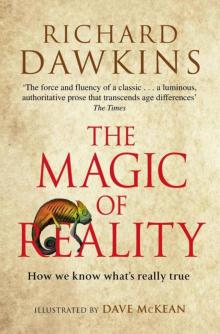 The Magic of Reality
The Magic of Reality The Extended Phenotype
The Extended Phenotype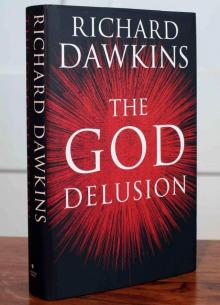 The God Delusion
The God Delusion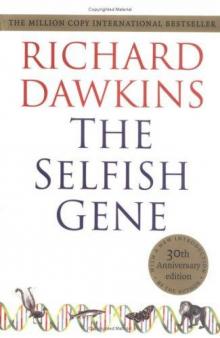 The Selfish Gene
The Selfish Gene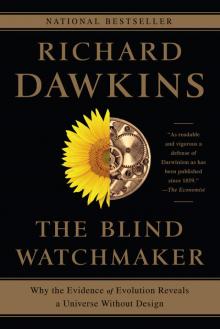 The Blind Watchmaker
The Blind Watchmaker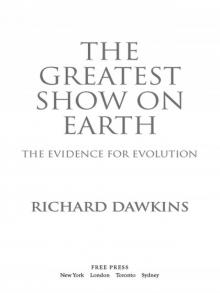 The Greatest Show on Earth
The Greatest Show on Earth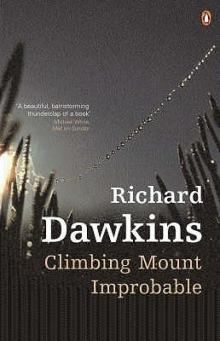 Climbing Mount Improbable
Climbing Mount Improbable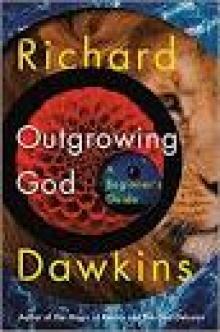 Outgrowing God
Outgrowing God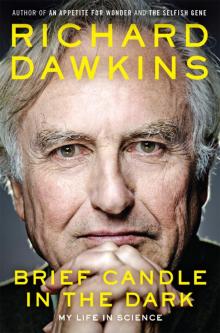 Brief Candle in the Dark
Brief Candle in the Dark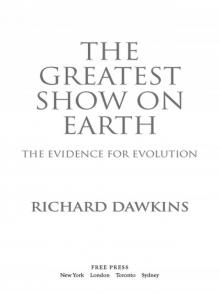 The Greatest Show on Earth: The Evidence for Evolution
The Greatest Show on Earth: The Evidence for Evolution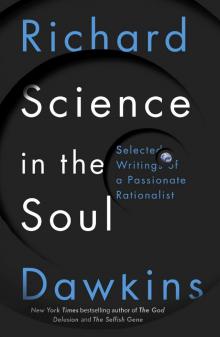 Science in the Soul
Science in the Soul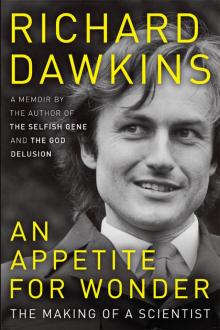 An Appetite for Wonder
An Appetite for Wonder